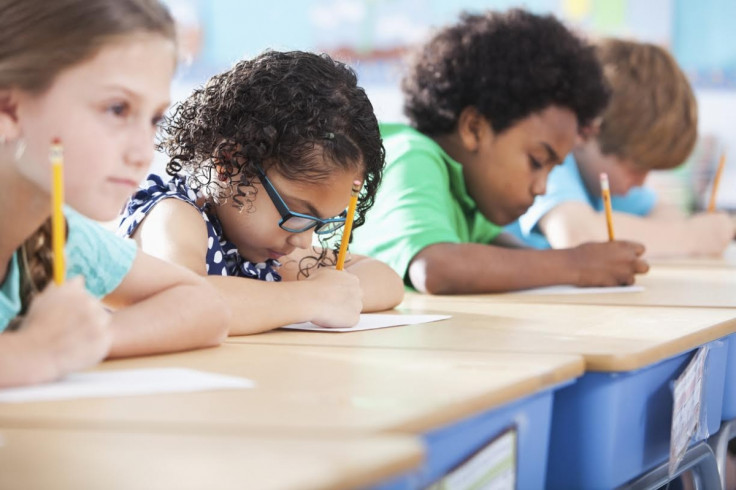A kids' strike misses the point - SATs are short-term pain for long-term gain

This week, more rigorous SATs for Year 2 pupils will begin and some parents are in revolt. A protest group called Let Our Kids Be Kids has initiated a day of action, with an online petition calling on parents to keep their seven year olds at home. They are protesting the perceived difficulty of the tests and the stress associated with them.
"We want an end to SATs... We want our kids to be kids again. We're encouraging parents to show Parent Power by keeping their children off school IN SUPPORT of a SATs boycott on Tuesday 3<sup>rd May," reads the petition by a group of parents of Year 2 children.
Of course, who could be against allowing children to have a childhood? Breaking addiction to smartphones and to social media sites, however, might be a better way forward.
Who will take responsibility in a decade's time when today's seven year olds are about to leave school without having mastered basic skills? "Mum, why did you keep me off school 10 years ago when they tested for literacy and numeracy? If I had failed then, they would, at least, have been able to do something about it. Now it is too late and I will never get a job."
Education Secretary Nicky Morgan has condemned the strike. Speaking at the National Association of Head Teachers' annual conference on the weekend, she said: "Keeping children home, even for a day, is harmful to their education and I think it undermines how hard you as heads are working."
She added "more rigorous" tests would help address the gap in literacy standards between England and Korea, Singapore and Ireland.
The sad truth is that, currently, around 20% of pupils are leaving primary school without an adequate standard of literacy or numeracy. They fall further behind at secondary school and, according to employers, are unemployable by the time they leave school. The sooner teachers know which children have problems, the sooner they can take action to help.
We need to let kids be kids but we also need to ensure that they have a future
In a recent report by the OECD British school leavers are shown to be doing very badly, indeed. The OECD report rated English teenagers aged 16 to 19 the worst of 23 developed nations in literacy and 22nd of 23 in numeracy. Out of 24 nations, 16-24 year-olds in England fared only slightly better, at 22nd for literacy and 21st for numeracy. We're behind Estonia, Australia, Poland and Slovakia in both areas. Most worryingly, we are the only country in the developed world in which grandparents out-perform their grandchildren in these basic skills.
This is a disgrace and a betrayal of the younger generation. Britain has become an educational "basket case". By the age of 15, our youngsters are up to three years behind 15 year olds in parts of the Asia-Pacific, such as Shanghai in China, Singapore and South Korea.
Yes, we need to let kids be kids but we also need to ensure that they have a future, too. SATs are an educational health check. For short-term pain, they provide long-term gain.
The foundation stone for success at school and in employment is literacy and numeracy. The new, tougher SATs are about ensuring that we can help children master these basic skills by identifying strengths and weaknesses at an early stage. Around seven years of age is the right time for the first tests. Earlier, children are too young to be reliably assessed, but any older and it is too late.
Of course, SATs can be improved. The over-emphasis on the technical side of grammar for Key Stage 2, in particular, is unnecessary. The promise of a better time ahead, however, in a SATs-free educational world, is false. It is a Pied Piper promise. Most children, especially those from deprived backgrounds, benefit from an educational health check before entering junior school.
Chris McGovern is chairman of the Campaign for Real Education
This article originally appeared on The Conservative Woman
© Copyright IBTimes 2025. All rights reserved.




















